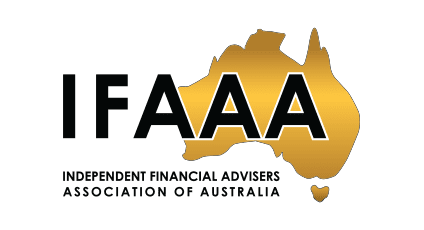HOW TO FIND TRUSTWORTHY FINANCIAL ADVICE
It’s been a rough time for the financial planning industry of late.
Between the Commonwealth Bank scandal, which saw customers lose their life savings at the hands of unscrupulous advisers, and the government watering down consumer protections, the idea of entrusting a planner with your nest egg is difficult to swallow.
“It seems we are having scandal, after scandal, after scandal,” says Daniel Brammall, president of the Independent Financial Advisers Association of Australia (IFAAA).
“The public has to be punch-drunk on this sort of stuff.”
Conflicts of interest – advisers receiving commissions and working for financial product specialists like banks and insurers – are the root of the industry’s problems, Mr Brammall says.
More than 80 per cent of planners are affiliated with a financial institution offering various products.
You’d probably need to interview five planners before finding one who wasn’t aligned with a bank or insurance company, Mr Brammall says.
The CBA scandal is a good example of what happens when conflicts of interest mix with sales culture, he says.
“People were paid to sell products and when you combine that with a sales culture, it’s like doctors getting together and saying, ‘how much penicillin can we sell today? The winner gets a free trip to Tahiti’,” Mr Brammall says.
“Financial planning was born 20-odd years ago out of the life insurance sales industry and that sales culture is still alive and well.
“The law allows those conflicts of interest to continue.”
Future of Financial Advice (FOFA) legislation introduced by the previous Labor government to improve the quality of financial advice doesn’t go far enough on banning commissions – despite the coalition’s recent amendments, Mr Brammall says.
“It’s said that FOFA banned conflicted remuneration, that’s not true. There’s a whole range of remuneration which is still permitted,” he says.
“I complained that the original FOFA was like a cold cup of tea, now it doesn’t even taste like tea.”
Financial Planning Association chief executive Mark Rantall says higher education and professional standards are needed.
“As it stands today, you can pay $2,000, do a two-week course and be licensed to give financial planning advice – that’s just not appropriate.”
Here are four tips for finding a trustworthy financial planner:
1. ARE THEY INDEPENDENT? CHECK FOR CONFLICTS OF INTEREST.
“An adviser can’t give you impartial advice if they are incentivised by a bank or insurance company,” Mr Brammall says.
Independent means an adviser receives no commissions, does not charge asset-based fees and is not affiliated with product manufacturers.
A list of independent advisers can be found on the IFAAA’s website.
Mr Rantall says you’ll struggle to find a planner not licensed to a bank, but that doesn’t mean their advice is bad.
“There is some benefit in sitting behind the strength of a brand,” he says.
“People have to make their own enquiries and if they’re being presented with something that sounds too good to be true, then it usually is.”
2. GET CLARITY ON WHAT YOU’RE PAYING FOR – WHO DOES WHAT AND WHEN – TO KEEP THEM ACCOUNTABLE.
“Usually you’ll get a service agreement that says, ‘we’ll stay on top of your stuff and that’ll be one per cent’,” Mr Brammall says.
“But if they can’t tell you what it is they’re doing, how can you know what it should cost? If you went to get a quote from a gardener you’d expect them to give you a list of things they’ll do to your garden.”
3. DECIDE WHAT YOU WANT OUT OF THE RELATIONSHIP.
Do you want one-off advice about a particular topic, or a long-term plan?
Meet the planner, discuss your goals and set the relationship up the way you want it or find another planner, Mr Rantall says.
“Make sure that whatever advice you get, you’re comfortable with, whatever fees you pay, you believe you’re getting value – you’re in charge, sometimes we forget that.
“If you don’t understand something, don’t do it.”
4. CHECK THEIR QUALIFICATIONS.
You can find Certified Financial Planners on the FPA website.
Ask what their qualifications are, what studies they’ve done, whether they are a member of a professional association and who they are licensed to, Mr Rantall says.
If they are licensed to a bank and recommend that bank’s products to you, you should ask why.
Get a copy of their Financial Services Guide outlining the services offered, fees charged and whether they’re affiliated with product providers.


